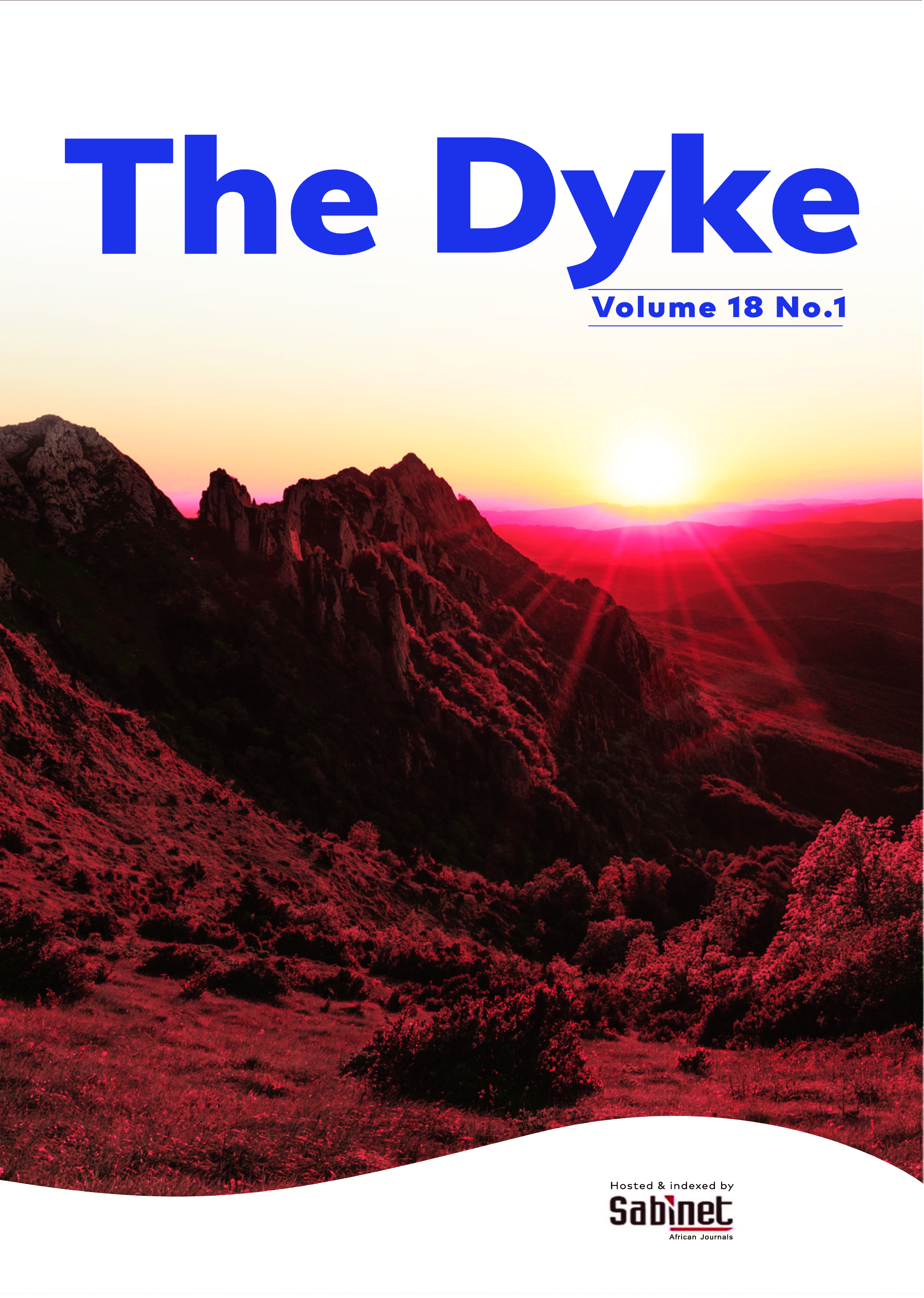Student Perceptions of the Effectiveness and Appropriateness of the Process Writing Approach in Collaborative Writing.
DOI:
https://doi.org/10.64754/thedyke.v18i1.399Keywords:
process writing, collaborative writing, pre-writing stage, post writing stageAbstract
This study examined students' perceptions of the effectiveness and appropriateness of the process writing approach in collaborative writing (CW). To gather insights, the researcher administered questionnaires to 55 students who had completed two collaborative writing tasks. Of the 55 students surveyed, 40 returned completed questionnaires. The findings revealed that brainstorming was perceived as the most effective stage in collaborative writing, followed by planning, editing, research, and drafting. Conversely, the study identified research as the most challenging stage for students to execute collaboratively, followed by editing, brainstorming, drafting, and planning. The results suggest that group members might benefit from conducting research individually before convening to brainstorm and draft collectively. The study further highlighted that while certain stages of the writing process, such as brainstorming and reviewing, were well-suited to collaboration, others, such as editing, were less effective when performed collaboratively. The editing stage, which focuses primarily on grammatical structures and mechanics, proved particularly challenging in a group setting. Overall, the research suggests that effective collaborative writing requires a balance of individual and collective efforts across different stages of the writing process. These findings contribute to the development of more effective writing instruction in higher education and provide valuable guidance for researchers and educators seeking to refine collaborative writing practices.
References
Abahussain, M. O. (2020). Students' perceptions of group work in English language learning. English Language Teaching, 13(4), 33-41. https://doi.org/10.5539/elt.v13n4p33.
Adula, B. T. (2018). The effectiveness of the process approach to writing in developing learners' writing skills. International Journal of English Literature and Social Sciences, 3(6), 124-132. https://doi.org/10.22161/ijels.3.6.21.
Berndt, J. T. (2011). Collaborative writing strategies for effective group work. Journal of Writing Studies, 5(3), 207–218.
Dale, H. (1997). Co-authoring in the classroom: Creating an environment for effective collaboration. Journal of Adolescent & Adult Literacy, 41(1), 20–30. https://doi.org/10.2307/40014585.
Dobao, A. F. (2012). Collaborative writing tasks in the L2 classroom: Comparing group, pair, and individual work. Journal of Second Language Writing, 21(1), 40-58. https://doi.org/10.1016/j.jslw.2011.12.002.
Gillham, B. (2000). The research interview. London: Continuum.
Hedge, T. (2005). Writing (2nd ed.). Oxford: Oxford University Press.
Hussain, S. (2017). The role of brainstorming in improving students’ writing performance in English. International Journal of English and Literature, 8(9), 211-215. https://doi.org/10.5897/IJEL2017.1056.
Kroll, B. (2001). Considerations for teaching an ESL/EFL writing course. In M. Celce-Murcia (Ed.), Teaching English as a second or foreign language (3rd ed., pp. 219-232). Boston: Heinle & Heinle.
Lingard, L. (2021). Strategies for effective collaborative writing in research teams. Academic Medicine, 96(2), 161–167. https://doi.org/10.1097/ACM.0000000000003887.
Martinez, R., Roberge, M., & Stoll, J. (2020). Exploring the process approach in L2 writing: Benefits and challenges. TESOL Journal, 11(4), e548. https://doi.org/10.1002/tesj.548.
Miller, R. T. (1991). A historical analysis of the process approach to teaching writing. Journal of Writing Research, 2(1), 1-15. https://doi.org/10.1016/0898-5898(91)90015-7.
Mutwarasibo, F. M. (2013). Process writing and collaborative writing in the university context: Student experiences and perceptions. International Journal of Education, 5(3), 89-107. https://doi.org/10.5296/ije.v5i3.3774.
Mutsuda, P. (2003). Second language writing in the 21st century: An overview of current developments. Journal of Second Language Writing, 12(1), 1-7. https://doi.org/10.1016/S1060-3743(02)00123-4.
Nordin, S. M., & Mohammad, N. (2017). The best of two approaches: Process/genre-based approach to teaching writing. The English Teacher, 46(2), 69-83.
Pham, V. P. H. (2021). The effectiveness of collaborative writing on students’ writing fluency: A case study. Teaching English with Technology, 21(1), 3-15. Retrieved from http://www.tewtjournal.org/.
Seow, A. (2002). The writing process and process writing. In J. C. Richards & W. A. Renandya (Eds.), Methodology in language teaching: An anthology of current practice (pp. 315-320). Cambridge: Cambridge University Press.
Seliger, H. W., & Shohamy, E. (1989). Second language research methods. Oxford: Oxford University Press.
Storch, N. (2005). Collaborative writing: Product, process, and students’ reflections. Journal of Second Language Writing, 14(3), 153-173. https://doi.org/10.1016/j.jslw.2005.05.002.
Storch, N. (2013). Collaborative writing in L2 classrooms. Bristol: Multilingual Matters.
Storch, N. (2019). Collaborative writing: Promoting language learning, language use, and teamwork skills. Language Teaching, 52(1), 40-59. https://doi.org/10.1017/S0261444818000320.
Vygotsky, L. S. (1978). Mind in society: The development of higher psychological processes. Cambridge, MA: Harvard University Press.
Widodo, H. P. (2013). Implementing collaborative process-based writing in the EFL college classroom. Research Papers in Language Teaching and Learning, 4(1), 198-206. Retrieved from http://rpltl.eap.gr/.
Winarti, A., & Cahyono, B. Y. (2020). The effects of the process writing approach combined with collaborative writing on student performance in an EFL context. TESOL Journal, 11(2), e560. https://doi.org/10.1002/tesj.560.

Downloads
Published
How to Cite
Issue
Section
License
All articles in The Dyke are published under the Creative Commons Attribution 4.0 International License (CC BY 4.0).
Under this licence:
- Others may copy, redistribute, remix, transform, and build upon the work for any purpose, even commercially.
- Appropriate credit must be given to the original author(s) and source (The Dyke), along with a link to the license.
- Any changes made must be indicated.
Full licence details: https://creativecommons.org/licenses/by/4.0/
Archiving and Preservation
The Dyke supports long-term preservation of scholarly work through partnerships with digital repositories and indexing services, including Sabinet African Journals. Authors are also encouraged to deposit a copy of their published article in institutional or subject-specific repositories.




